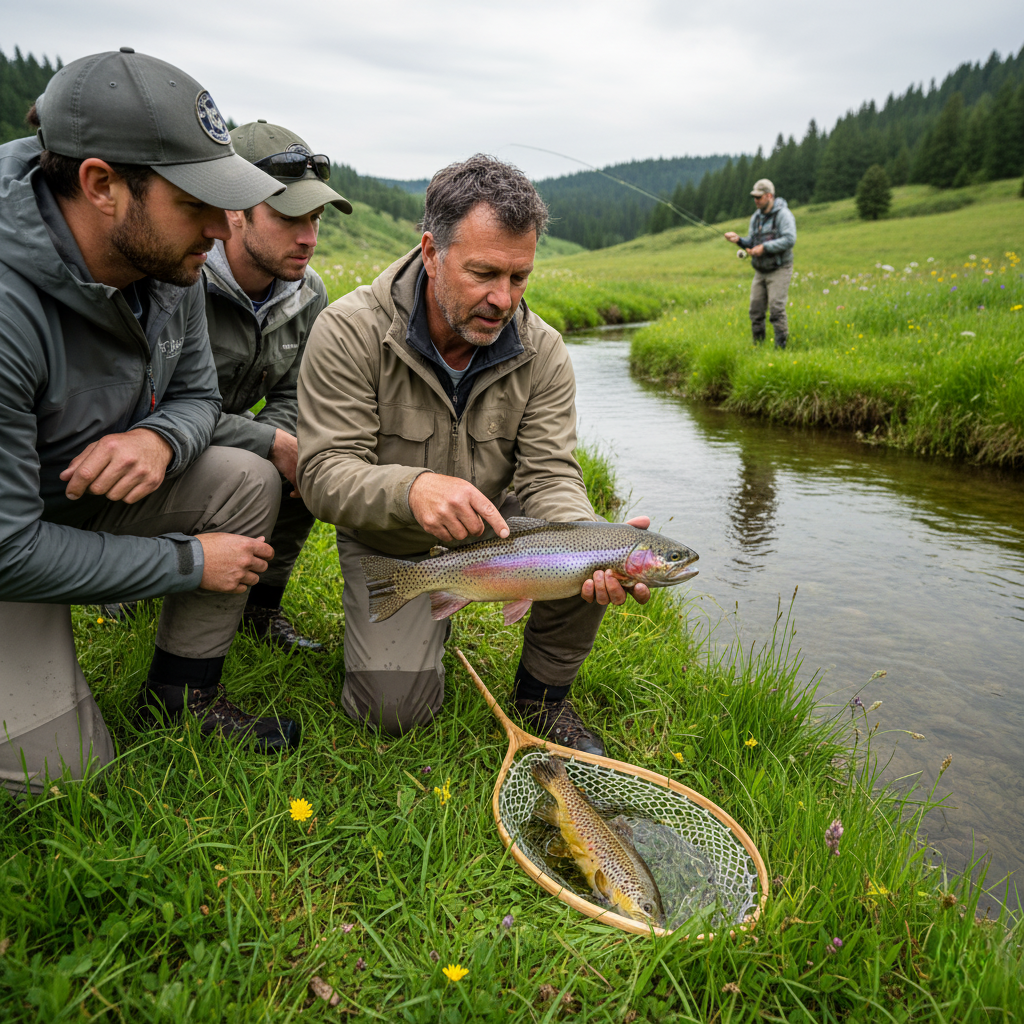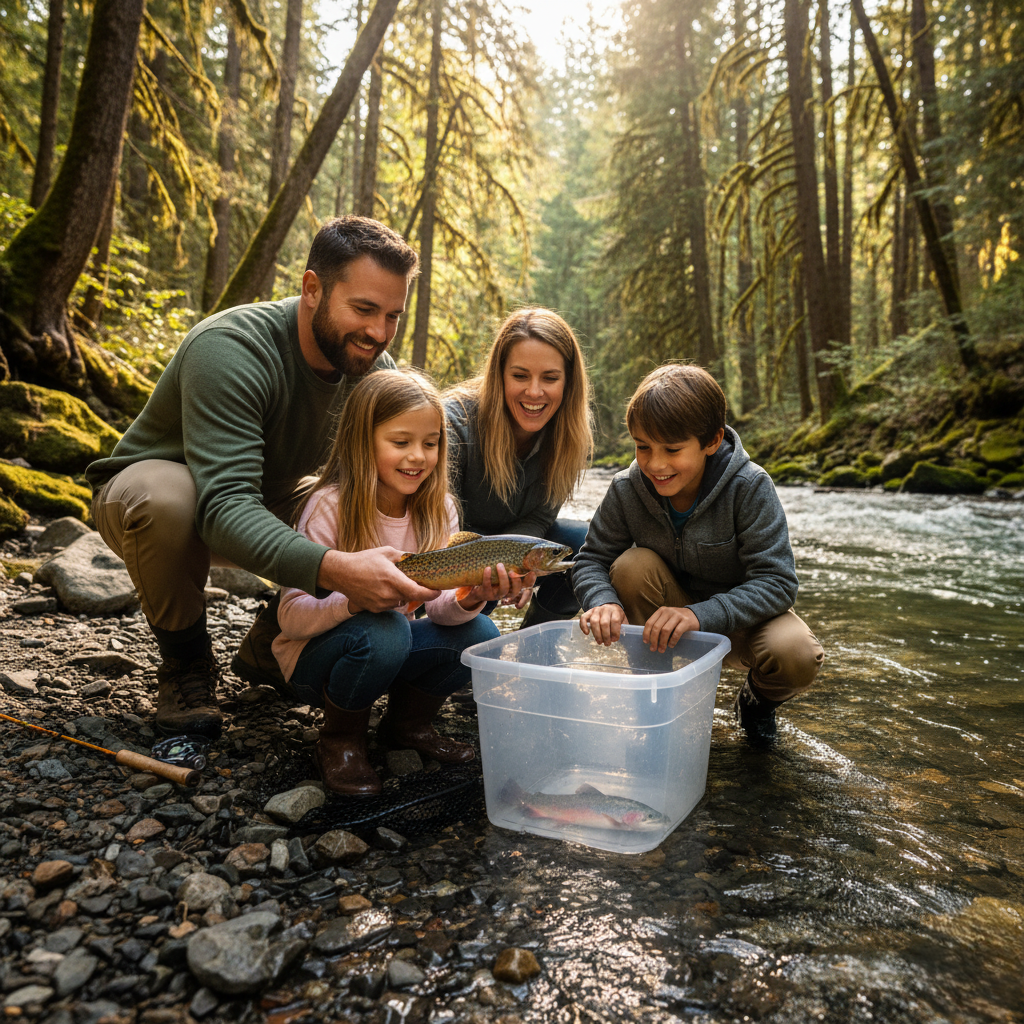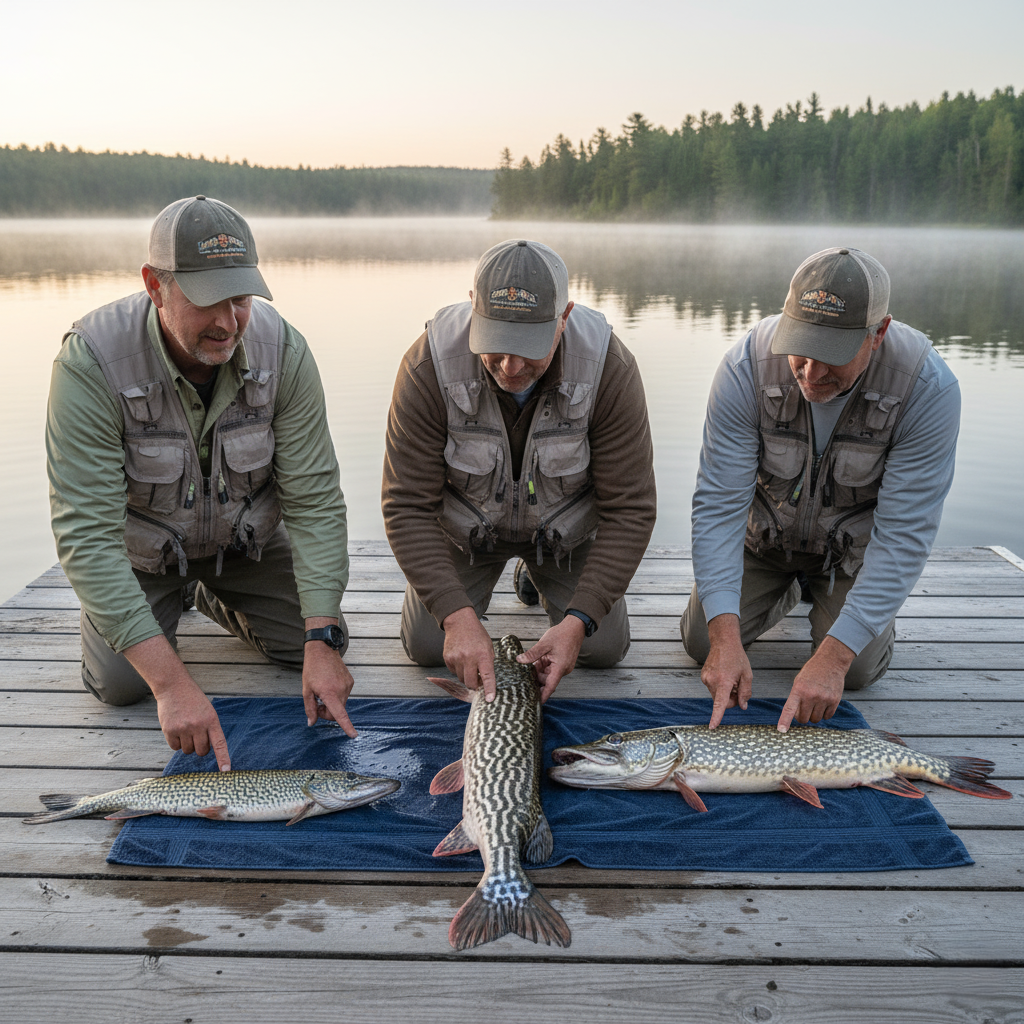Introduction: Why Understanding Trout Species Matters
For anglers across America, knowing your trout species means the difference between a successful outing and frustration. Each type of trout has unique behaviors, habitats, and feeding patterns that demand specific fishing strategies. This comprehensive guide reveals:
- 7 primary trout species found in U.S. waters
- Identification secrets to tell them apart at a glance
- Species-specific fishing techniques used by guides
- Little-known facts about each variety
- Prime locations to find each type
- Recommended gear (with expert-vetted affiliate picks)
1. Rainbow Trout (Oncorhynchus mykiss)
The All-American Favorite
- Identifying Features:
- Pink-red lateral stripe
- Black spots concentrated above lateral line
- White-tipped fins
- Habitat Hotspots:
- Western mountain streams
- Great Lakes tributaries
- Stocked ponds nationwide
- Fishing Secrets:
- Best lures: Spinners (#3 Blue Fox Vibrax) and small crankbaits
- Prime times: Early morning during insect hatches
- Pro tip: They’re more aggressive than brown trout
Gear Pick: [St. Croix Triumph Spinning Rod](affiliate link) – perfect sensitivity for detecting light strikes
2. Brown Trout (Salmo trutta)
The Wily European Import
- Identifying Features:
- Golden-brown body
- Red-orange spots with pale halos
- Square tail
- Habitat Hotspots:
- Spring creeks of Pennsylvania
- Driftless Area streams
- Tailwaters below dams
- Fishing Secrets:
- Best baits: Crayfish imitations and large streamers
- Prime times: Low light conditions
- Pro tip: Fish deeper pools than rainbows
Gear Pick: [Orvis Clearwater Fly Rod](affiliate link) – ideal for presenting delicate dry flies
3. Brook Trout (Salvelinus fontinalis)
America’s Native Char
- Identifying Features:
- Worm-like markings (vermiculations)
- White leading edges on fins
- Red spots with blue halos
- Habitat Hotspots:
- Appalachian mountain streams
- Remote beaver ponds
- Cold spring-fed creeks
- Fishing Secrets:
- Best lures: Small spinners (#0 Mepps Aglia)
- Prime times: Early season before water warms
- Pro tip: They’re more temperature-sensitive than other trout
Gear Pick: [Eagle Claw Featherlight Rod](affiliate link) – perfect for small stream brookies
4. Cutthroat Trout (Oncorhynchus clarkii)
The Western Native
- Identifying Features:
- Distinct red-orange slash under jaw
- Larger, irregular spots concentrated near tail
- Yellowish body hue
- Habitat Hotspots:
- Rocky Mountain streams
- Yellowstone Park waters
- Coastal Pacific rivers
- Fishing Secrets:
- Best flies: Stimulators and hopper patterns
- Prime times: Summer terrestrial insect activity
- Pro tip: They’re more surface-oriented than rainbows
Gear Pick: [Redington Classic Trout Fly Rod](affiliate link) – excellent for dry fly presentations
5. Golden Trout (Oncorhynchus mykiss aguabonita)
California’s High Country Jewel
- Identifying Features:
- Vibrant golden-yellow body
- Parr marks often visible on adults
- Red lateral stripe
- Habitat Hotspots:
- Sierra Nevada alpine lakes
- High elevation streams
- Designated heritage waters
- Fishing Secrets:
- Best lures: Tiny spoons (1/16 oz Kastmaster)
- Prime times: Mid-summer when accessible
- Pro tip: Use ultralight gear for these small but feisty fish
Gear Pick: [Shimano Sahara Ultralight Combo](affiliate link) – perfect for high country adventures
6. Lake Trout (Salvelinus namaycush)
The Deepwater Giant
- Identifying Features:
- Light spots on dark background
- Deeply forked tail
- Large, predatory head
- Habitat Hotspots:
- Great Lakes
- Western reservoirs
- Deep northern lakes
- Fishing Secrets:
- Best baits: Large tube jigs and spoons
- Prime times: Spring and fall near surface
- Pro tip: Use downriggers in summer to reach deep fish
Gear Pick: [Okuma Cold Water Trolling Rod](affiliate link) – built for laker fishing
7. Bull Trout (Salvelinus confluentus)
The Threatened Trophy
- Identifying Features:
- No distinct spots on dorsal fin
- Larger head than brook trout
- Olive-green coloration
- Habitat Hotspots:
- Pacific Northwest rivers
- Montana’s Clark Fork system
- Protected waters only
- Fishing Secrets:
- Check local regulations (often catch-and-release only)
- Best lures: Large streamers
- Prime times: Early summer
Gear Pick: [Lamiglas X11 Swimbait Rod](affiliate link) – handles big bull trout
Trout Identification Cheat Sheet
| Species | Body Color | Spot Pattern | Key Identifier |
|---|---|---|---|
| Rainbow | Silvery | Black spots | Pink stripe |
| Brown | Golden | Red/orange spots | No pink stripe |
| Brook | Dark green | Worm marks | White fin edges |
| Cutthroat | Yellowish | Large spots | Red jaw slash |
| Golden | Bright yellow | Parr marks | High elevation |
| Lake | Gray-green | Light spots | Forked tail |
| Bull | Olive | Few spots | Large head |
Conservation Tips for Ethical Anglers
- Know the regulations – Many native trout have special protections
- Use barbless hooks – Especially for catch-and-release
- Keep fish wet – Minimize handling time
- Report invasives – Like brook trout in cutthroat waters
Recommended: [Fish Handling Gloves](affiliate link) to protect trout slime coats

Conclusion: Becoming a Trout Identification Expert
Mastering these trout varieties will make you a more successful and conservation-minded angler. Remember:
- For beginners: Start with rainbows in stocked waters
- For challenge: Target wild browns in technical streams
- For adventure: Hike for golden trout in alpine lakes
Ready to gear up? Check our [Complete Trout Fishing Kit](affiliate link) with species-specific recommendations.


